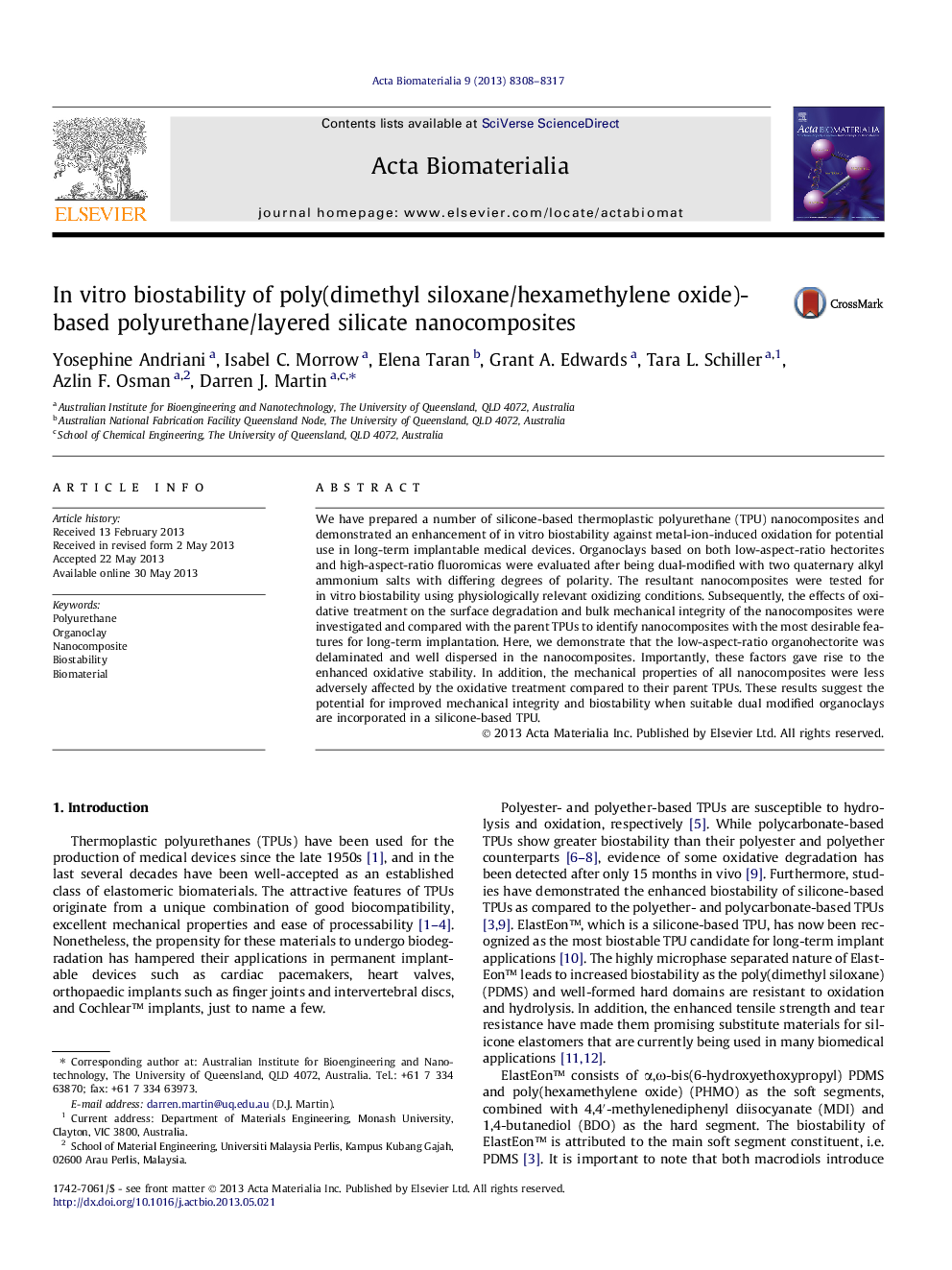| Article ID | Journal | Published Year | Pages | File Type |
|---|---|---|---|---|
| 10159801 | Acta Biomaterialia | 2013 | 10 Pages |
Abstract
We have prepared a number of silicone-based thermoplastic polyurethane (TPU) nanocomposites and demonstrated an enhancement of in vitro biostability against metal-ion-induced oxidation for potential use in long-term implantable medical devices. Organoclays based on both low-aspect-ratio hectorites and high-aspect-ratio fluoromicas were evaluated after being dual-modified with two quaternary alkyl ammonium salts with differing degrees of polarity. The resultant nanocomposites were tested for in vitro biostability using physiologically relevant oxidizing conditions. Subsequently, the effects of oxidative treatment on the surface degradation and bulk mechanical integrity of the nanocomposites were investigated and compared with the parent TPUs to identify nanocomposites with the most desirable features for long-term implantation. Here, we demonstrate that the low-aspect-ratio organohectorite was delaminated and well dispersed in the nanocomposites. Importantly, these factors gave rise to the enhanced oxidative stability. In addition, the mechanical properties of all nanocomposites were less adversely affected by the oxidative treatment compared to their parent TPUs. These results suggest the potential for improved mechanical integrity and biostability when suitable dual modified organoclays are incorporated in a silicone-based TPU.
Related Topics
Physical Sciences and Engineering
Chemical Engineering
Bioengineering
Authors
Yosephine Andriani, Isabel C. Morrow, Elena Taran, Grant A. Edwards, Tara L. Schiller, Azlin F. Osman, Darren J. Martin,
